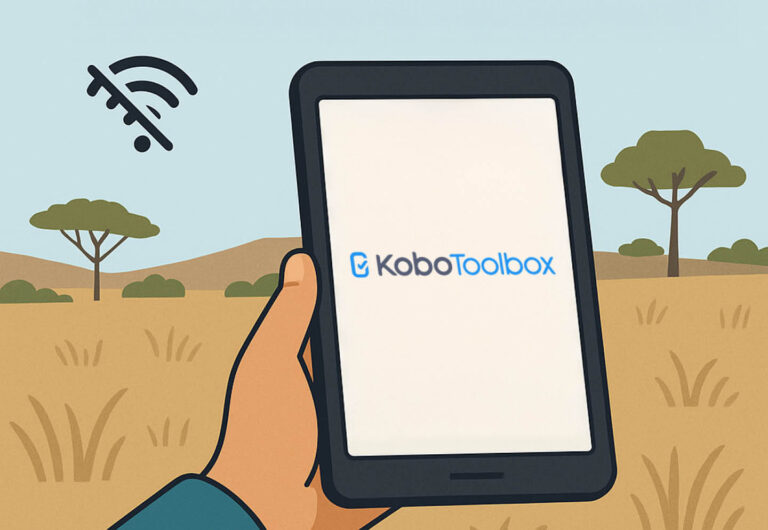KoboToolbox: Empowering Data, the FOSS Way

As part of our ongoing series on FOSS projects with strong impacts on our world, we’re excited to showcase KoboToolbox: an open source platform that empowers humanitarian and development organizations worldwide to collect and manage essential data, even in challenging environments. This article explores KoboToolbox’s journey, its innovative tools, and the global impact it has achieved. It was a pleasure to interview Tino Kreutzer, Kobo’s Chief Operating & Innovation Officer)
How has KoboToolbox evolved since its inception, and what were the key milestones in its development?
In 2005, KoboToolbox’s precursor was piloted in Uganda as a digital alternative to pen and paper in crisis zones. By 2010, its customized version of OpenDataKit (ODK) proved essential for data collection in remote areas, leading organizations like the UN to adopt KoboToolbox for its user-friendly, open source tools. In 2013, the team partnered with UN OCHA to expand KoboToolbox globally, and since the official launch in 2014 has offered it as open source software as well as hosting it for free. In 2019, KoboToolbox became an independent nonprofit. Although it took a year to reach the first million submissions, by 2021 users were collecting one million submissions every two days.
How has KoboToolbox been instrumental in supporting humanitarian and development organizations worldwide?
Today, more than 32,000 nonprofits worldwide use KoboToolbox to track projects and drive impact in their communities. Initially popular with UN agencies and international NGOs, KoboToolbox is used mostly now by small, local organizations in low-income and middle-income countries. This shift reflects our commitment to accessible data technology for positive social change. We’re proud to be recognized as a Digital Public Good and winning the 2024 Pizzigati Prize for outstanding open source projects was another great validation.
Can you share some success stories from organizations using KoboToolbox to make a significant impact?
Of course, many great examples come to mind, like UNHCR who uses KoboToolbox globally to support refugees and displaced people, or the International Federation of Red Cross and Red Crescent Societies that supports millions of people affected by disasters and health crises. Many of our users use KoboToolbox for poverty reduction and economic development efforts, such as the World Bank or the Caribbean Development Bank. We also have many users beyond humanitarian and development work, especially in global health, human rights, and education: organizations like the Environmental Justice Foundation and Blue Ventures use data collected with our tools to advocate for marine ecosystems and biodiversity.
How does KoboToolbox ensure high data quality and security in remote and low-resource settings?
KoboToolbox is designed for remote, low-resource areas, supporting quality data collection at every stage. Users can design surveys with over 20 question types, collect data offline, and store it locally until online access is available. Data is encrypted in transit, with end-to-end options. For high-security needs, the toolkit can run fully offline and only connect devices through a secure local network.
In what ways does KoboToolbox cater to multilingual needs and diverse user groups?
Accessibility and inclusivity are extremely important to us. To support our global users, we currently support over 60 languages in the user interface, and we’re continually adding more languages to our interface thanks to our lively translator community. Users can also easily add translations to their surveys, which means accurate data can be collected in many different languages. For inclusivity, KoboToolbox’s offline capabilities are really crucial, as this makes it possible for users to collect data from remote communities who often aren’t reached due to language or internet barriers.
How does KoboToolbox provide ongoing support and consultation for mission-critical projects?
We have a great team of experienced data experts that provide a range of support services, from custom training, and dashboard development to form design and project permissions. For large organizations dealing with a lot of data, we offer private servers that can be scaled and customized and offer unlimited survey submissions, more oversight, and added security. Nonprofit organizations benefit from our free Community Plan but can also upgrade their plan to meet their specific needs. Finally, all our users have access to free resources through our Help Center, the lively Community Forum, and the KoboToolbox Academy of online training courses.
Can you tell us more about the KoboToolbox Academy and the educational resources it offers?
The new KoboToolbox Academy is something we’re very excited about. Our team is creating self-paced online courses specifically for our global community and organizations in social impact sectors. We now offer our KoboToolbox Essentials Course in English, French, and Spanish for data collection basics and a free interactive training on humanitarian needs assessments. We have also just launched our new XLSForm Fundamentals Course to help users build advanced forms and collect better data
Can you highlight any specific projects or collaborations that demonstrate KoboToolbox’s global impact?
We recently launched the KoboToolbox Ambassadors Program, a volunteer-driven initiative to improve access to data technology for organizations around the world. With 30 volunteer Ambassadors from 28 countries, the goal of the program is to vastly improve local capacities through local training workshops, user groups, and other kinds of initiatives that can best be done in person, on the ground, and in local languages. Our Ambassadors share their expertise to help organizations use data for positive community change and suggest new features and improvements based on emerging user needs.
What recent technological innovations have been integrated into KoboToolbox, and how do they improve data collection and analysis?
Collecting and analyzing qualitative data from open-ended responses is essential but resource-intensive. To streamline this, we began integrating AI tools two years ago, using natural language processing to automatically transcribe and translate audio responses in 72 languages for transcription and 106 for translation. This saves organizations significant time and enables easier data gathering in local languages, crucial for effective community support. We’re now expanding to include AI-driven large language models and classifiers, which will transform open-ended data analysis for many organizations.
